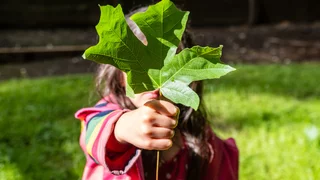
Nature and well-being
More and more scientific research proves how beneficial exercise -but also learning and relaxing- in nature is for body and mind. People feel better (less stress, higher QoL), and are healthier (less cardiovascular disease, diabetes and anxiety disorders) when more greenery and water are present.

It is not surprising that more and more doctors are prescribing a natural cure. This does not have to be an entire forest: one tree or one plant can make all the difference, which is extremely important in an urban context. For example, Ghent has recently imposed a “green standard”, which stipulates that at least 10m² of green space per inhabitant must be present within a walking distance of 400m. These parks and parks are therefore the gardens of the people of Ghent, and also of its visitors. For example, employees of companies also benefit from a green environment, to promote well-being at work and prevent stress and burn-out complaints.
Given the proven effect and the loud social voice for more nature and sustainability (see recent climate demonstrations), organizations such as Natuurpunt and the Agency for Nature & Forests have developed a whole series of projects/initiatives to bring citizens to nature: urban allotments, trees, yoga and fitness nature is no longer a rarity, while green playgrounds and nature walking therapies also saw the light of day. Companies are also experimenting with nature experiences, walking meetings and other outdoor activities to promote well-being at work.
Although there are many initiatives, it seems that it is mainly the wealthy, progressive, nature-conscious citizens who are responding to this. But how can we increase and diversify the reach of such initiatives, so that the current 'non-nature users' can also experience nature within an urban context and experience its welfare benefits? Despite the many initiatives, there is no information regarding the critical success factors of setting up nature initiatives in the city. Which initiatives do succeed in having a large and diverse reach, and why do others fail? We want to answer this question with this exploratory study. We also look at which existing projects have an effect on well-being at work and are feasible in a business setting.
Research realisations and publications
Meet the researcher
Work with us?
Request customised research
We are happy to help you formulate your research question and approach.








